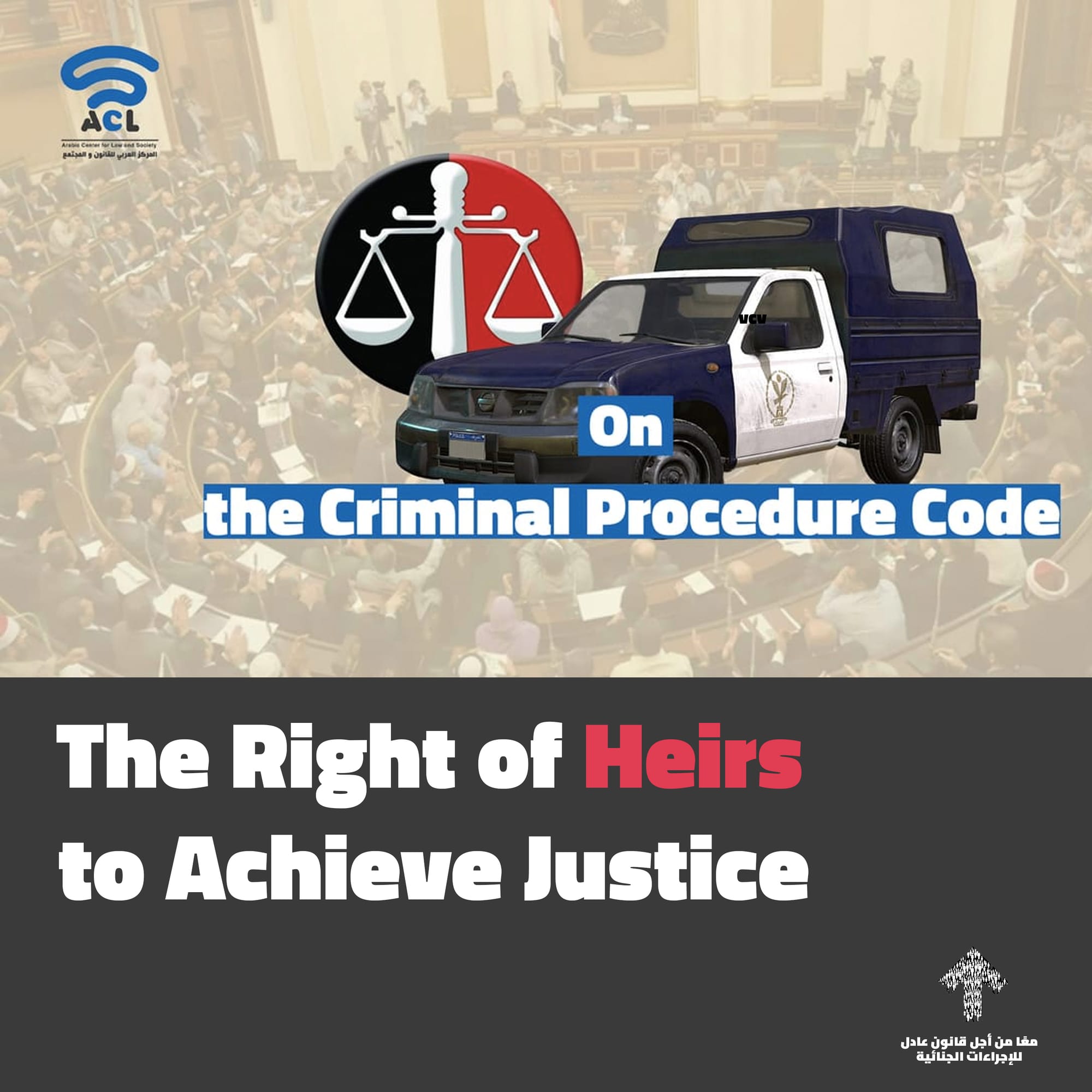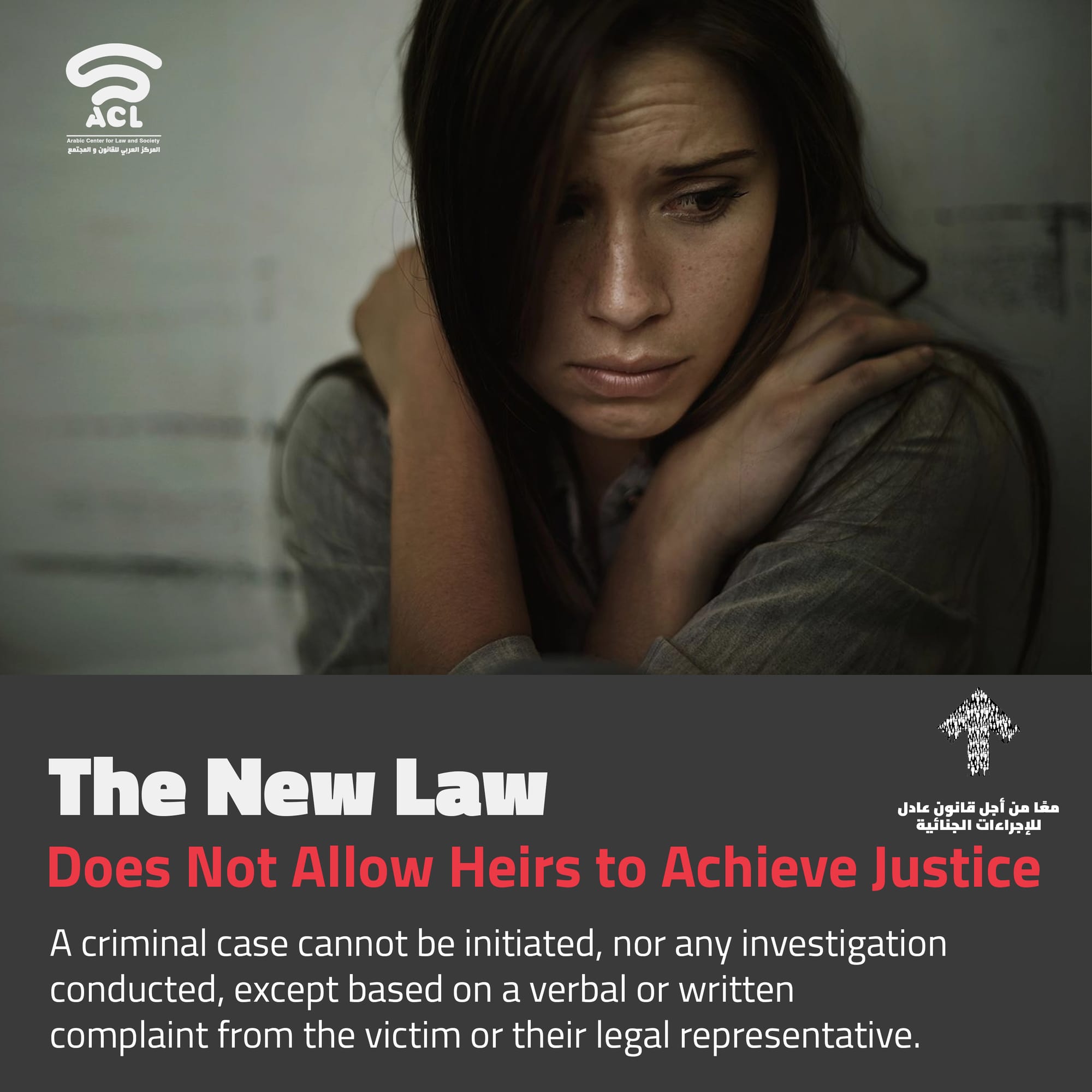Does the New Article (3) of the Criminal Procedure Law Ensure Justice for Heirs?

Recent amendments to Article (3) of the Criminal Procedure Law aim to guarantee justice for heirs following the death of the victim. Let us examine the proposed text and its implications:
Proposed Text of Article (3) by the Parliament

The criminal case cannot be initiated or any investigation undertaken except upon a verbal or written complaint submitted by the victim or their legal representative to the Public Prosecution or to judicial officers, for crimes stipulated in Articles 185, 274, 277, 279, 292, 293, 303, 306, 307, and 308 of the Penal Code, as well as in cases specified by the law. Complaints are not admissible after three months from the date the victim became aware of the crime and its perpetrator unless otherwise stipulated by law.
Proposed Text by the Campaign
The criminal case cannot be initiated or any investigation undertaken except upon a verbal or written complaint submitted by the victim, one of their lawful heirs, or their legal representative to the Public Prosecution or judicial officers, for crimes stipulated in Articles 185, 274, 277, 279, 292, 293, 303, 306, 307, and 308 of the Penal Code, as well as in cases specified by the law. Complaints are not admissible after three months from the date the victim or their heirs became aware of the crime and its perpetrator unless otherwise stipulated by law.
Legal Analysis of the Campaign's Proposal: What Does the Amendment Address?
- The amendment addresses a significant legal gap that previously prevented heirs from pursuing criminal cases after the victim’s death.
- It ensures that the victim’s rights are not lost after their death, particularly in cases involving crimes of defamation or violations of honour.
- The amendment allows heirs to defend family rights and seek justice, even in the absence of the victim.
Practical Example: The Importance of This Amendment
If a person falls victim to defamation affecting their reputation but passes away before filing a complaint:
- Before the Amendment: The family would have no right to pursue the case, leading to the loss of justice.
- After the Amendment: The new provision allows lawful heirs to file a complaint within the legal timeframe (three months from awareness of the crime), ensuring the protection of the family’s rights.




